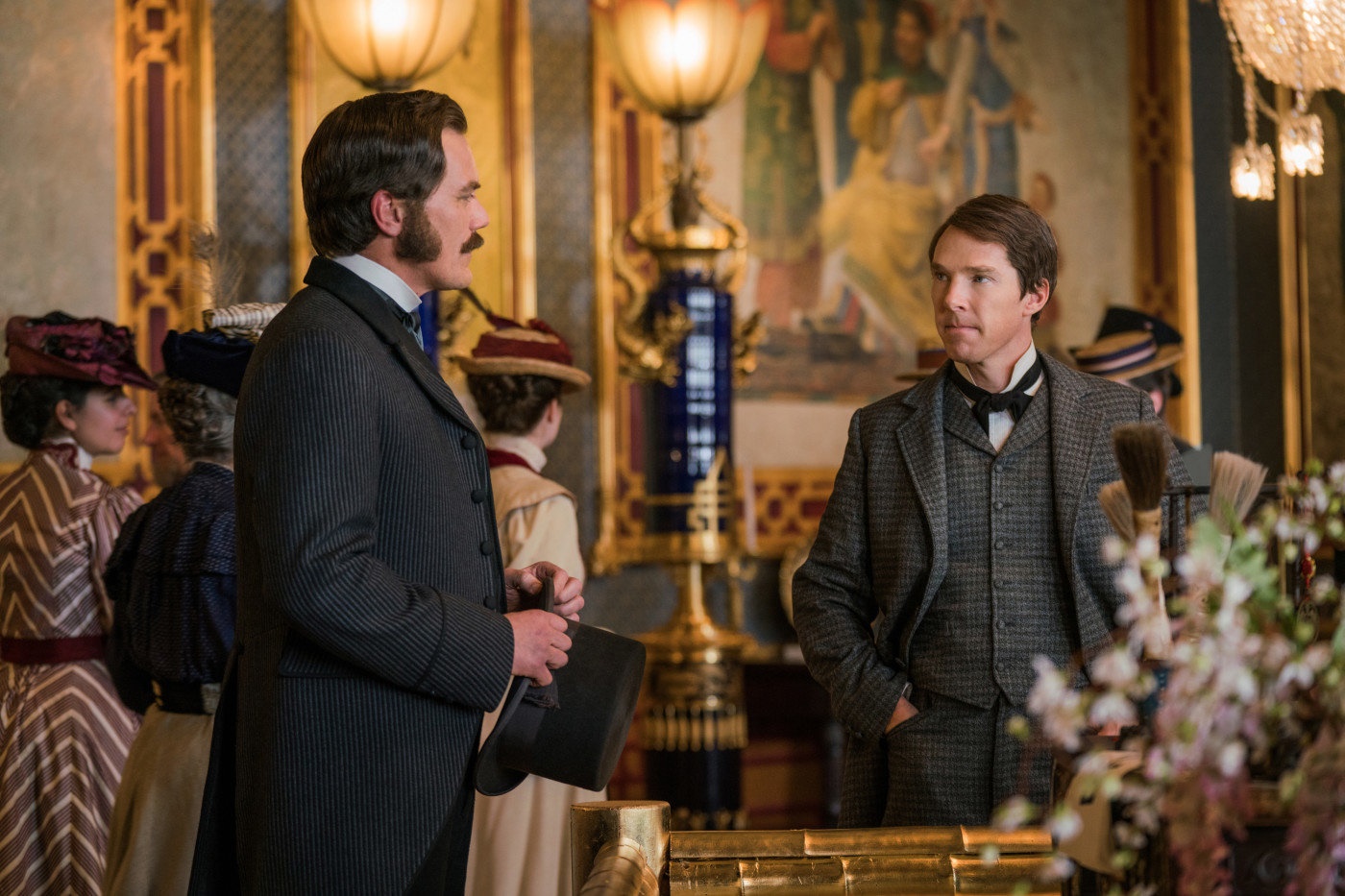Film Review:
The Current War

This seriously troubled historical drama is finally being released to cinemas after being shelved three years ago, but despite some late-in-the-game fiddling from director Alfonso Gomez-Rejon it still struggles to find its spark.
It seems that an early version was almost ready in 2017, but original producer Harvey Weinstein was charged and removed before its completion, and his credit was hastily scratched out.
After a while, director Gomez-Rejon retooled the film, expanded subplots (including beefing up Tuppence Middleton’s role as the tiredly tragic Mary Edison) and stitched everything together, but now it feels overcooked and bloated, with way too many fancy, exposition-stuffed montages.
Opening in 1880 as American inventor Thomas Edison (the English Benedict Cumberbatch caught before the last two Avengers movies) shows off the electric light, we then watch as industrialist George Westinghouse (grim Michael Shannon) is impressed and wants to know more. However, Edison snubs him in a most ungentlemanly fashion, and a years-long war commences between the two guys, which leads to an awful lot of glowering.
The more practical Westinghouse believes in alternating current, while the more impulsive Edison thinks this will lead to deaths by electrocution, a clash that should crackle and fizz, but actually feels all a bit dim. Serbian-American ‘futurist’ (and modern cult figure) Nikola Tesla (the English Nicholas Hoult, a sometime X-Man) also turns up to work for Edison, but he’s underappreciated, and the overly nice Hoult struggles to manage the Balkan brooding needed for the part.
As a history lesson, there are some worthy points to be learnt here (such as Edison’s wild dreams helping lead to the birth of cinema), and it certainly has the golden glow of a good period piece. Yet there’s so much wrong too: Cumberbatch’s accent is iffy; Tom Holland (another Avenger) overacts as Edison’s assistant Samuel Insull; the whole thread about Tesla feels tacked-on (and could easily have been tacked-off); and that endlessly flashy editing becomes infuriating.
How exactly did so many name players and such apparently prestige material add up to something so weirdly unilluminating?